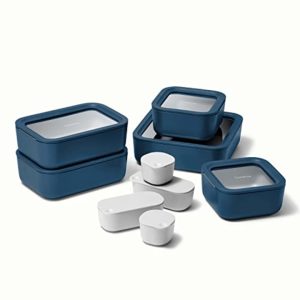
Utilizing Vertical Space: Innovative storage solutions for small bedrooms
In small bedrooms where floor space is limited, maximizing vertical space can be a game-changer when it comes to storage. With some creative storage ideas, you can transform your walls into functional and stylish storage solutions. One option is to install wall-mounted shelves or floating shelves. These provide a perfect spot for displaying decorative items while also creating additional storage space for books, plants, or small essentials. Another idea is to utilize pegboards, which offer a versatile storage solution. You can hang hooks, baskets, or shelves on the pegboard, allowing you to customize the storage according to your needs. By thinking vertically, you can make the most of your small bedroom, utilizing every inch of available space.
For those who prefer an unconventional approach to storage, consider utilizing vertical space in unexpected ways. Some creative storage ideas include using a ladder as a makeshift shelving unit or hanging baskets from the ceiling to store items like scarves, hats, or even socks. Another option is to incorporate a wall-mounted desk that folds down when not in use, saving valuable floor space. Additionally, using vertical storage systems like hanging shoe organizers or hanging garment bags can help keep small items organized and easily accessible. Embracing these innovative storage solutions allows you to maximize the space in your small bedroom while adding a unique and stylish touch to the overall decor.
Maximizing Closet Organization: Clever ways to optimize storage in small bedrooms
Small bedrooms often come with limited closet space, making organization a challenge. However, with some creative storage ideas and clever solutions, it is possible to maximize closet organization in these compact spaces. One way to optimize storage is by utilizing hanging organizers. These can be hung on the inside of closet doors or on a rod, providing additional space for storing shoes, accessories, or even folded clothes. Another option is to install built-in shelves or drawers within the closet, allowing for easy separation and organization of different items. This not only helps maximize the available space but also keeps everything neatly tucked away, creating a clutter-free and visually appealing closet.
In addition to utilizing the inside of the closet, it’s also important to consider the space above and below. Installing additional shelving above the existing closet rod can significantly increase storage capacity. This can be used to store items such as bins, folded clothes, or even baskets for smaller belongings. Another ingenious storage idea is to incorporate a shoe rack or adjustable shelving beneath the hanging clothes. This utilizes the often underutilized space and provides a designated spot for shoes, handbags, or other accessories. By thinking vertically and making use of every inch of available space, it is possible to optimize storage in small bedrooms and create an organized and functional closet.
Dual-Purpose Furniture: Creative storage ideas that double as functional furniture pieces
When it comes to small bedrooms, the key is finding furniture that not only serves its primary purpose but also provides additional storage options. Creative storage ideas for small bedrooms often revolve around using dual-purpose furniture. For example, a bed with built-in drawers or a storage ottoman that can hold blankets, pillows, or even shoes. These innovative furniture pieces not only save space but also help maximize the storage potential of a small bedroom. By incorporating clever storage solutions into functional furniture pieces, you can eliminate clutter and create a more organized and spacious room.
Another creative storage idea for small bedrooms is using bookshelves or shelving units that double as room dividers. This can help define different areas in the bedroom while also providing ample storage space. By utilizing vertical space, these versatile furniture pieces allow you to display your favorite books or decorative items on one side, while the other side conceals storage bins or baskets to keep personal belongings out of sight. The beauty of dual-purpose furniture is that it adds functionality without sacrificing style, making it an ideal choice for those looking to make the most of their limited space.
Under-Bed Storage Solutions: Smart ways to utilize the space beneath your bed
One of the most effective ways to maximize storage in a small bedroom is by utilizing the space beneath your bed. This often-overlooked area can provide valuable storage space for items that you don’t frequently use, such as seasonal clothing, extra bedding, or even shoes. By investing in under-bed storage containers or bins that are specifically designed for this purpose, you can keep your belongings organized and easily accessible. These containers typically come in various sizes and styles, allowing you to choose the ones that best suit your needs and preferences.
Another smart way to utilize the space beneath your bed is by opting for a bed with built-in storage. Many furniture manufacturers now offer bed frames with drawers or shelves incorporated into the design, providing you with convenient storage solutions right where you need them. This can be especially beneficial for smaller bedrooms where every inch of space matters. The built-in storage compartments can be used to store a variety of items, from books and bedside essentials to clothing and accessories. Not only does this save you the hassle of finding additional storage solutions, but it also helps to keep your bedroom clutter-free and more organized.
Wall-Mounted Storage: Stylish and space-saving storage options for small bedrooms
Wall-mounted storage is a popular choice for small bedrooms due to its stylish and space-saving qualities. One option is to install floating shelves which not only provide a place to showcase decorative items but also offer functional storage space for books, accessories, or even folded clothes. These shelves can be installed at various heights, allowing you to create a custom storage solution that fits your specific needs and preferences. Additionally, wall-mounted cabinets are another fantastic choice for small bedrooms. These cabinets can be sleek and modern in design, providing a clean and seamless look while offering ample storage space for items that you want to keep hidden away.
Another stylish and space-saving storage option for small bedrooms is to utilize wall-mounted hooks or pegboards. These versatile storage solutions allow you to hang items such as hats, scarves, or jewelry, creating a visually appealing display while freeing up valuable floor or drawer space. Additionally, wall-mounted hooks can also be used to hang small shelves or baskets, providing additional storage options for smaller items that you want to keep within easy reach. With a wide variety of styles and designs available, wall-mounted hooks and pegboards offer endless possibilities for organizing and maximizing storage in your small bedroom.
Creative Use of Shelving: Unique storage ideas using shelves to maximize space
When it comes to maximizing space in small bedrooms, shelves can be a game-changer. They offer a versatile and functional storage solution that can help keep your belongings organized and within easy reach. One unique idea for utilizing shelves is to install them above the doorways. By taking advantage of the typically unused vertical space above the doors, you can create additional storage without sacrificing floor space. This is an excellent option for small bedrooms with limited wall space. You can use these shelves to store books, decorative items, or even baskets to hold small essentials.
Another creative way to use shelves is to install them around the perimeter of the room, near the ceiling. This not only adds an interesting visual element to the space but also provides additional storage opportunities. You can use these high shelves to display decorative items, such as photographs or artwork, to keep them out of reach from young children or pets. Additionally, you can place less frequently used items, like seasonal clothing or extra bedding, on these higher shelves to free up space in your closets or drawers. By thinking outside the box and utilizing the vertical space, your small bedroom can become a haven of smart and stylish storage solutions.
DIY Storage Hacks: Budget-friendly and creative storage solutions for small bedrooms
If you’re looking for budget-friendly and creative storage solutions for your small bedroom, DIY storage hacks can be a game-changer. With a little bit of creativity and some basic crafting skills, you can maximize your space without breaking the bank. One popular DIY storage hack is using old crates or wooden boxes as shelves or under-bed storage. Simply give them a fresh coat of paint to match your bedroom decor and stack them or attach them to the wall. This not only adds extra storage, but also adds a rustic charm to your room.
Another DIY storage hack is repurposing everyday items for storage. For example, you can use a hanging shoe organizer on the back of your bedroom door to store small accessories like scarves, belts, or even jewelry. You can also repurpose an old ladder as a stylish and functional bookshelf. Just prop it against the wall and place your books or decorative items on each rung. These simple yet innovative DIY storage hacks can help you make the most out of your small bedroom space.
Hidden Storage Solutions: Clever ways to hide storage in plain sight
One clever way to hide storage in plain sight is by utilizing furniture with concealed compartments. For example, a bench or ottoman with a lift-up seat can provide hidden storage for extra blankets or pillows. These pieces of furniture not only serve their original purpose but also provide a discreet place to keep items out of sight. Another option is to choose a bed frame with built-in drawers. These drawers can be used to store clothing, shoes, or even spare bedding, freeing up precious closet space. By incorporating hidden storage within functional furniture, you can maintain a clutter-free bedroom without sacrificing style.
Another innovative way to hide storage is by utilizing the space underneath staircases. Instead of leaving this area unused, consider installing custom-built drawers or cabinets. This solution not only maximizes storage space but also adds a unique design element to your bedroom. Additionally, integrating floating shelves with concealed compartments is an excellent way to stay organized while keeping your belongings hidden. These shelves can be used to display decorative items while also providing a discreet storage option for smaller items such as keys, wallets, or even jewelry. With hidden storage solutions like these, you can maintain a clean and organized bedroom while keeping clutter out of sight.
Creative Wardrobe Alternatives: Unique storage ideas for small bedrooms without traditional wardrobes
When it comes to small bedrooms without traditional wardrobes, thinking outside the box is key. Fortunately, there are plenty of creative wardrobe alternatives that can help maximize storage space while adding a unique touch to your room. One option is to utilize an open clothes rack or hanging rod. By installing a sturdy rod and utilizing hangers, you can easily display your clothing items while keeping them easily accessible. This not only saves precious floor space but also adds a minimalist and modern aesthetic to your bedroom.
Another innovative alternative is to incorporate a stylish room divider with built-in shelving. This multifunctional piece serves as a partition while also providing ample storage space for your folded clothes, shoes, and accessories. By selecting a room divider that complements your bedroom decor, you can add a touch of elegance while optimizing the limited space available. Additionally, you can consider using decorative storage boxes or baskets within the shelves to keep your belongings organized and visually appealing.
Small Bedroom Organization Tips: Overall strategies and techniques to keep your small bedroom clutter-free
Creating an organized and clutter-free small bedroom can seem like a daunting task, but with the right strategies and techniques, it can be achieved. The first step is to declutter. Start by going through your belongings and getting rid of anything that you no longer need or use. Donate or sell items that are in good condition, and throw away anything that is broken or beyond repair. This will instantly free up space in your bedroom and make it easier to keep things tidy.
Once you have decluttered, it’s time to maximize the storage potential of your small bedroom. One effective technique is to utilize vertical space. Install shelves or bookcases along the walls to create additional storage areas. This will not only free up floor space but also provide a place to display books, decor, and other items. Additionally, consider using wall-mounted storage solutions such as hooks or pegboards to hang hats, bags, or accessories. This will keep them within reach while also freeing up drawer or closet space.
Garage, House, Cabin, Shed, Playhouse, Greenhouse & Barn Plans
Complete Construction Blueprints Special Offer 5 Homes, 6 Cabins, 16 Garages, 6 Barns, Sheds, Playhouse, Greenhouse and Workshops. 75% commission with high conversion rates. New sales page with email campaign that converts well. http://www.hplans.us
Woodworkers Treasure Chest
70% Commission with unique Done-For-You Sales Funnel - brand new Product for Woodworkers. Proven profitable niche with thousands of woodworking enthusiast with disposable income. Works well for Retired Hobbyists, Weekend Warriors, Survivalist and Preppers






